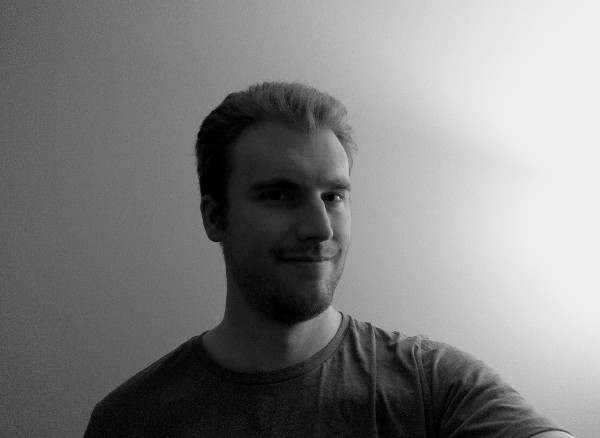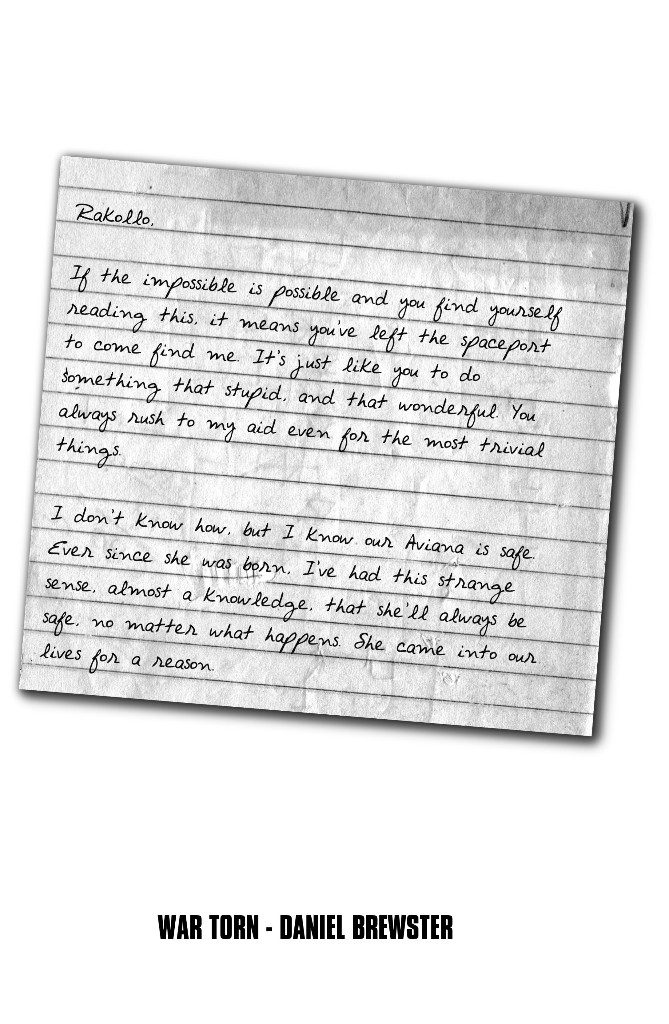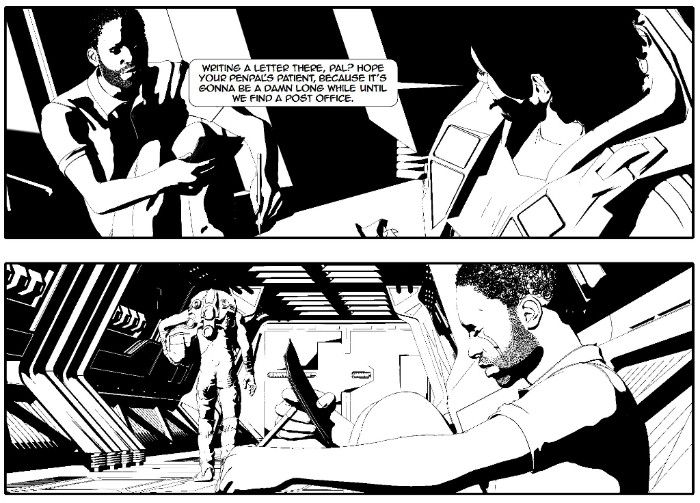All The King’s Men was written by an incredibly talented and diverse team of writers from around the world. The stories in the anthology are informed by their unique perspective on the world, and their own fascinating experiences.
We here at anthology HQ want to celebrate these writers and their experiences. We not only want to support their other creative endeavours, but we also want to give you some insight into them as people and as creators, and to give you a chance to follow these great writers beyond this anthology.
Today’s featured writer is Daniel Brewster, a writer based in Canberra, Australia.

Please, tell us about yourself.
I was born in Melbourne in the late 80s, and my childhood obsession with the TV series, Gumby, may explain why I have such a warped imagination today. Whenever I’m bored, I like to think of weird and wacky events taking place around me, like polar bears bursting through the walls or gravity suddenly going the other way.
I loved reading Goosebumps during primary school, but I wasn’t truly haunted by a work of literature until high school, when I came face to face with George Orwell’s Nineteen Eighty-Four. That’s some really scary stuff.
There are a number of books that have had an impact on my beliefs and emotions over the years, and I think they make handy reference points for some of the major turning points in my life.
How long have you been writing?
I’ve been writing since grade 3. My first story centred around three of my cartoon characters. I have no idea what creatures they were supposed to be, but they always looked sideways because I couldn’t figure out how to draw them front on! I wrote several adventure stories, inspired by Star Wars and Indiana Jones. Later, I enjoyed writing stories with surprising moments and fantastical elements.
In high school I experimented with some darker themes, where the characters took themselves more seriously and the stories left the reader feeling sober minded and contemplative. This eventually led me into poetry.
Lately, I’ve been trying my hand at journaling and screenwriting.
Who is your favourite writer, and why?
One of my favourite writers is Brian Aldiss, simply because he wrote Galaxies Like Grains of Sand. His mesmerising prose and mind blowing ideas drew me into the world of the book so vividly that I forgot I was even reading. That’s a big deal for me — usually I find reading a conscious effort. But Aldiss made me completely forget myself. After a few dazzling minutes, I would emerge and realise what had just happened.
The only other books that have done this to me are Chris Abani’s Song For Night and Harper Lee’s To Kill a Mockingbird.
What can you tell us about your writing process? Do you approach each project in the same way?
Every time I sit down to plot, to write, or to edit, I feel like it’s an experiment. It doesn’t matter how many times I try to establish a process, my subconscious brain has other ideas and I just have to go with it.
Writing War Torn for All the King’s Men has made me realise some of my strengths and weaknesses, which has been wonderful. Each draft, each rewrite, felt like a risk. I never felt confident about the outcome, until it arrived. So, when I write stories, I just try to write something, and I eventually end up with a sculpture that vaguely resembles the idea I had in my head. Then, I chip away at it through editing, through rewrites. Bit by bit, word by word, it starts to take form.
The main lesson I’ve learnt is to make the time to write. Sometimes I don’t write because I’m worried about a poor result. But that’s a good way to write nothing. So, I’m developing the discipline to simply sit down, start writing, and see what my strange mind throws out onto the page. It’s always unpredictable, no matter how well I plan ahead!

Your story in All The King’s Men is a short story entitled War Torn, a moving piece in which a man writes a heartfelt letter to a baby daughter he has been forcibly separated from. Can you tell us what this story means to you and where it came from?
I wanted to write a human story, one that touched upon universal themes, but one that stood out in a unique way. War destroys people’s lives on such a grand scale. We all know this. I wanted to show how it can also destroy people’s lives on a small scale.
A father writes a letter to his baby daughter, a message in a bottle in space, and he tells her exactly how the war turned the most insignificant thing into an instrument of destruction for their family.
I hope this story generates a more sophisticated empathy towards people caught in the crossfire of all the wars raging around our world. They’re not all uniform in their suffering. They’re three dimensional, complex, and relatable human beings, just like us. We could have just as easily been in their situations.

You identify yourself as someone who sates his curiosity through writing. Do you believe there is a philosophical link between fiction and truth? What do you believe good writing can teach us?
Writing helps me clarify what it is exactly that I believe, and creates opportunities for me to form new beliefs. When I see my thoughts on the page, either in my journal or disguised as as a story of fiction, I attain clarity about myself and the world around me. I feel closer to the truth.
Fiction can serve many purposes, but I believe that good quality writing can introduce us to new ideas and new emotional journeys that make us better people: more thoughtful, more empathetic. The written word has a different psychological effect on us than, say, the moving image, so quality writing can offer us unique journeys and experiences of the mind. That’s quite exciting when you think about it.
Are you working on or planning anything else at the moment?
I’m currently chipping away at a TV show pilot and some short stories. I hope the TV series will be a global sensation by 2020, but in the meantime I’ll be content to have some of my short stories published in various magazines.
Where would you like to see yourself and your writing career in five or ten years’ time?
Ideally, I would like to be able to write full time and with complete freedom. But if I need to keep working to support my writing career, that’s okay too. I’m unsure at this stage what I want to do long term. It all depends on how well I do over the next couple of years, with my TV pilot and short stories. As long as I’m trying hard, I’ll be happy.
We here at ATKM headquarters think Daniel is a writer worth following.
If anyone is interested in sending Daniel a writing assignment, please contact him via Twitter: @danielrbrewster